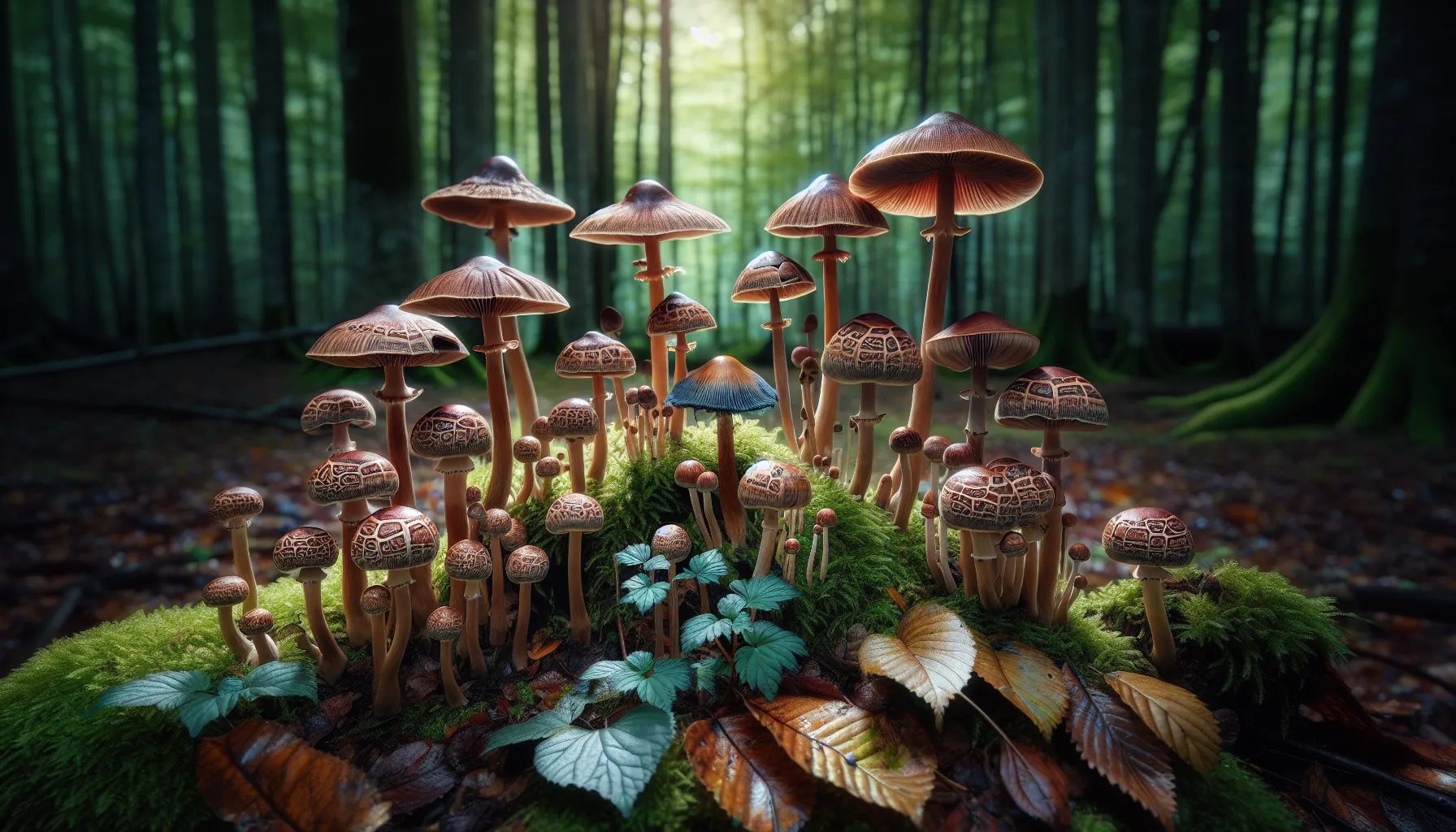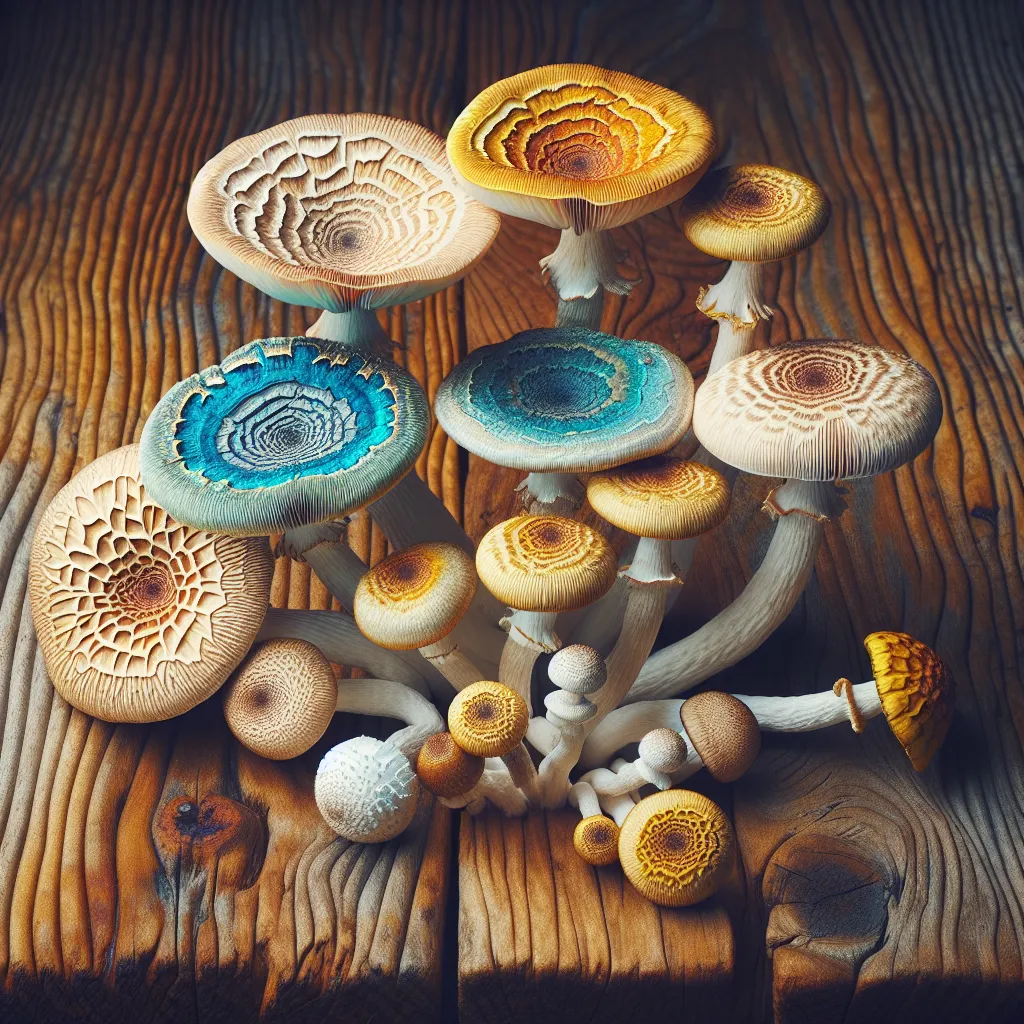Psilocybin, the psychedelic compound found in “magic mushrooms,” has been a subject of fascination and controversy for decades. This naturally occurring substance, primarily associated with the Psilocybe genus of mushrooms, is renowned for its hallucinogenic properties. Despite its federal classification as a Schedule I controlled substance in the United States, psilocybin has been the focus of recent scientific studies exploring its potential therapeutic applications. This article delves into the uses, side effects, precautions, and current research surrounding psilocybin.
Understanding Psilocybin
Psilocybin can be acquired from both fresh and dried mushrooms and can also be synthesized in a laboratory. Its effects include visual and auditory hallucinations, an altered sense of time, and changes in thought processes. These effects are primarily due to its ability to stimulate serotonin receptors in the brain, particularly the 5-HT2A receptor.

Traditional and Recreational Uses
Historically, psilocybin has been used in spiritual and religious rituals, with evidence of its use dating back thousands of years in Mesoamerican societies. In contemporary times, it is occasionally used recreationally for its psychoactive effects.
Psilocybin in Medicine
There is a growing interest in the medical community about the potential of pure psilocybin in treating a range of mental health disorders. Studies have been investigating its efficacy in treating conditions such as depression, anxiety, post-traumatic stress disorder (PTSD), alcohol use disorder, and other addictions. The promise lies in psilocybin’s potential to induce profound psychological experiences that can catalyze personal growth and healing.
For example, a study published in the Journal of Psychopharmacology examined the long-term effects of psilocybin-assisted psychotherapy on patients with life-threatening cancer, finding significant reductions in psychiatric and existential distress (Long-term follow-up of psilocybin-assisted psychotherapy for psychiatric and existential distress in patients with life-threatening cancer).
Side Effects and Safety
When taken by mouth under medical supervision, psilocybin is possibly safe for single-dose use. Controlled settings have seen its use without severe side effects. Commonly reported adverse reactions include confusion, hallucinations, headaches, high blood pressure, nausea, and paranoia. However, the risk for abuse appears low, and withdrawal symptoms and physical dependence are not major concerns.

Nevertheless, it is important to note that there isn’t enough reliable information to determine if psilocybin is safe to use outside of a medical setting, including microdosing, which involves taking sub-hallucinogenic doses regularly.
Special Precautions and Warnings
- Pregnancy and Breastfeeding: Due to a lack of sufficient data, it is recommended to avoid using psilocybin if pregnant or breastfeeding.
- Bipolar Disorder: Individuals with bipolar disorder might experience an increase in mania following psilocybin use.
- Heart Disease: There is a potential risk for people with heart disease, as psilocybin could increase the likelihood of cardiac arrest and death.
- Irritable Bowel Syndrome (IBS): For those with IBS, psilocybin might exacerbate symptoms like diarrhea.
Drug Interactions
Psilocybin has a moderate interaction with serotonergic drugs, as it can increase serotonin levels in the brain. Taking psilocybin with these medications may lead to an excessive buildup of serotonin, resulting in serious side effects such as heart problems, seizures, and vomiting. Similarly, stimulant drugs can interact with psilocybin, and caution is advised when considering this combination.
Emerging Research and Clinical Trials
In recent years, a number of studies have been published that shed light on the potential therapeutic benefits of psilocybin. Notable among these is research into psilocybin’s impact on treatment-resistant depression, which has shown promising results.
A study published in The New England Journal of Medicine compared the effects of psilocybin to the antidepressant escitalopram and found that psilocybin produced rapid and substantial antidepressant effects (Trial of Psilocybin versus Escitalopram for Depression).
Another study in JAMA Psychiatry explored the use of psilocybin-assisted therapy for alcohol use disorder, illustrating a reduction in heavy drinking days compared to placebo (Percentage of heavy drinking days following psilocybin-assisted psychotherapy vs placebo in the treatment of adult patients with alcohol use disorder).
Furthermore, an article in Psychopharmacology discussed the impact of psilocybin on cognitive and emotional functions in healthy participants, offering insights into the compound’s effects on brain function (The effects of psilocybin on cognitive and emotional functions in healthy participants).
Conclusion
Psilocybin remains a complex substance with a controversial past and a potentially transformative future in the realm of mental health treatment. As studies continue to explore its safety and efficacy, the medical community is cautiously optimistic about its therapeutic potential. Nonetheless, it is imperative that individuals respect the legal status of psilocybin and seek professional medical advice before considering its use.
For those interested in the science and policy of psilocybin, the following resources provide detailed and nuanced information:
- Heffter Research Institute, which supports research into psilocybin and other hallucinogens in neuroscience and therapeutic studies.
- MAPS (Multidisciplinary Association for Psychedelic Studies), which conducts research and educates the public on the medical, legal, and cultural contexts for people to benefit from the careful uses of psychedelics.
- Beckley Foundation, which pioneers psychedelic research and works towards global drug policy reform.
[ai-img-square|A close-up of psilocybin mushroom spores under microscopic view]
Always remember that psilocybin is not a casual substance and should only be used within the confines of authorized medical research or approved therapeutic practice.
